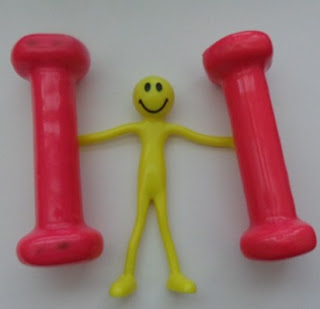injectable methotrexate
To prepare for the appointment the first thing I did to find information was to ask fellow members in an online RA group about treatments they had used successfully. I got this answer "My primary care physician prescribed a paste called triamcinolone .. that seems to work overnight for me. I think it came in a 0.1% paste. It really helped me. I put it on right before bed because it is pasty and gritty...but did the trick."
Next I checked Dr. Irwin Lim's blog called BJC Health's Connected Care. He's an Australian rheumatologist who practices in a team setting in Sydney, Australia. I knew that one of his most popular posts ever was about methotrexate, so after reading it again I asked him about mouth ulcers and MTX in the comments section. He said he uses folinic acid and sometimes lowers the dosage in his patients.
At the doctor
That meant that when I walked into my doctor's office I already knew a lot about the issues and possible solutions. These prior interactions gave me an understanding that seemed to be well founded. When the doctor suggested trying an alcohol free mouthwash I was confident enough of my information to request what my friend suggested and others validated.
At the doctor
That meant that when I walked into my doctor's office I already knew a lot about the issues and possible solutions. These prior interactions gave me an understanding that seemed to be well founded. When the doctor suggested trying an alcohol free mouthwash I was confident enough of my information to request what my friend suggested and others validated.
Thank goodness I did not have to try to convince a friend who is in healthcare that it was a good treatment. She's a skeptic who said "The sores were probably getting better already" when I told her how well it had worked.
Thinking back to my past history of doctor visits I used to be ready to accept the first solution or idea presented. In some cases that led to more visits. Being a meek and uninformed patient seldom helped me.
Being an active participant in your own care may come naturally, but it was a skill I had to learn. Reading online journals, articles and about the experiences of other patients in forums and blogs helped me to gain confidence in myself. Now even when I'm not asked I join the discussion and ask questions as well.
Strong and active patient
Strong and active patient
With this collaborative approach I see my doctor less often. It took me until now to notice how much of a change there has been from the early days. This week it seemed so clear that things were different.
Here is what Stephen Wilkins says about two different ways of looking at what is popularly called patient engagement (which means the active involvement of the patient), and who benefits from these approaches. His ideas about two outlooks he has observed in health care ring true to me. Are we engaged as patients "to advance our activation, quality of care, clinical outcomes and the patient experience" or is the intention to make us a source of cheap labor?
We'll keep our eyes on that issue.
Here is what Stephen Wilkins says about two different ways of looking at what is popularly called patient engagement (which means the active involvement of the patient), and who benefits from these approaches. His ideas about two outlooks he has observed in health care ring true to me. Are we engaged as patients "to advance our activation, quality of care, clinical outcomes and the patient experience" or is the intention to make us a source of cheap labor?
We'll keep our eyes on that issue.









